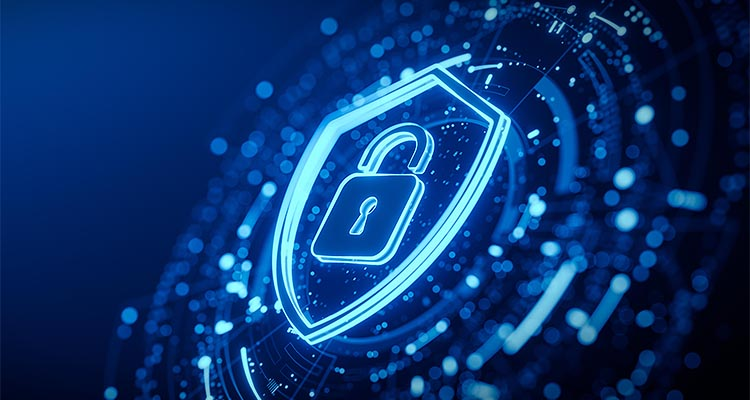Why network security is vital for logistics and key to successful digital innovation
Digital transformation is changing the game for the logistics sector. Every day, logistics businesses are embracing new and innovative technologies – driving forward rapid growth and transformation. According to TalkTalk Business’ own research, conducted in collaboration with Don’t Be Shy, 85 percent of senior IT leaders in logistics businesses view cybersecurity as the most important factor in building supply chain resilience over the next decade.
Whilst digital transformation initiatives and new technologies are undeniably creating exciting opportunities for the sector, it’s also providing new opportunities for cyber attackers. It’s crucial that logistics businesses are equipped to deal with the threat of cyber hacking, with the infrastructure in place to protect important data.
A tempting target
Recent data from global cyber security company NCC Group shares that May 2024 saw ransomware attacks reach an all-time high month-on-month and year-on-year, with the industrial sector remaining a prime target. In this landscape, ensuring the protection of customer and business data is essential.
The logistics sector appeals to hackers for several reasons. Every day, the average logistics business processes vast amounts of data – including banking and payment details. This makes them a wealthy source of sensitive information. The ramifications of this data being breached or compromised would be far-reaching and potentially catastrophic for the business.
So, how can logistics businesses improve their cyber resilience? And how big a role does network connectivity play in keeping customer data safe?
The risks of outdated cybersecurity

Castle-and-moat cybersecurity is a system in which a business’ data is contained in a single data center (a ‘castle’) and protected by firewalls (the ‘moat’). However, the rise in remote and hybrid working habits, and the increase in automation, means that this model of cybersecurity is quickly becoming outdated.
As technology, and working habits, continue to evolve, more and more logistics businesses are becoming reliant on the use of multiple cloud vendors for data storage and supporting mobile workers. This means that data is spread and stored across multiple locations, rather than in a single ‘castle’, creating a larger attack surface which businesses need to protect. As such, a model designed to focus cyber security efforts on a single perimeter – such as castle and moat security – may not be up-to-scratch with modern business models.
For the logistics sector, this would mean a greater risk of attackers gaining access to vast amounts of customer data, causing major disruption to business and supply chain operations, and reducing customer trust.
Embracing solutions such as Secure Access Service Edge (SASE) can help logistics businesses to extend their networking and security capabilities to manage multiple more complex data storage models. Unified SASE solutions provide a cloud architecture model that allows network and security to function as a single service, ensuring that any network endpoints are securely and effectively managed to mitigate the risk of a security breach. Providing rich visibility, proactive insights and comprehensive control over policy, access, and identity, such solutions are well-equipped to handle changing business models and trends.
With solutions such as SASE, logistics business leaders have confidence that their supply chain is protected from disruption, no matter how reliant on cloud technology it might be.
Supply chain audits
Logistics businesses are complicated machines and can be vulnerable to the risks of a supply chain attack.
Take the SolarWinds hack of 2020 for instance. Nobelium, a professional hacking group, gained access to SolarWinds’ Orion software and used it to exploit data from more than 30,000 public and private SolarWinds customers, including the US Government.
Logistics businesses can have several areas of their network that offer access to customers or rely on software provided by third parties. Each of these poses a potential risk, and an opportunity for hackers to gain access to data via partners or suppliers.
It only takes one weak link to open a business up to risk. Forensic auditing is well worth the time and effort it takes to mitigate the risks of cyber-attacks on supply chains.
Embracing zero-trust security
Sometimes referred to as perimeter-less security, zero-trust security is having a significant impact in modern IT.
Zero-trust offers a deep and multifaceted approach to cybersecurity. It creates a framework that requires all users inside and outside of a business’ network to be fully authenticated and continually validated to gain and retain access to data.
Embracing zero-trust means that logistics businesses can ensure that their supply chain remains resilient to attacks.
Denial-of-service attacks
Denial-of-service (DoS) attacks are a type of cyberattack which aims to make a network service or resource – such as a paywall or website – unavailable to its users. A distributed denial-of-service attack (DDoS) involves multiple sources of traffic (from a network of compromised systems) flooding the target resource and preventing any genuine traffic or users from accessing the system.
DDoS attacks can make the systems and applications of a logistics business useless, acting like a wrench in a supply chain’s operations. This can come at a huge cost, including the time lost to inefficiency, as well as reputational damage when customer data is put under threat.
With so much at stake, preparation and protection against DDoS attacks is important to consider. Investing in network security solutions, such as DDoS mitigation services, could save a supply chain from experiencing significant disruption down the line.
Preparing for resilience
In today’s world of digital transformation and automation, cybersecurity threats demand businesses’ utmost attention. As the logistics sector continues to embrace new and innovative technologies, having network solutions which provide centralized control and built-in security at scale is now a necessity for successful operations.
By adopting solutions such as SASE, the logistics sector can set up for a safer and more secure future, in which businesses can embrace innovative technologies with confidence.
For a list of the sources used in this article, please contact the editor.
www.talktalkgroup.com
Ian Cairns is Sales Director at TalkTalk Business. For over 25 years, TalkTalk Business has supported UK businesses of every shape and size, delivering fantastic connectivity, affordable prices and brilliant service. Whether a corner shop or corporation, the company is here to support business ambition.
